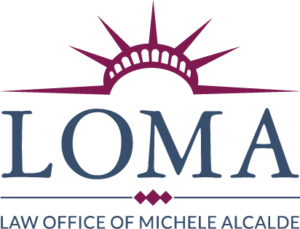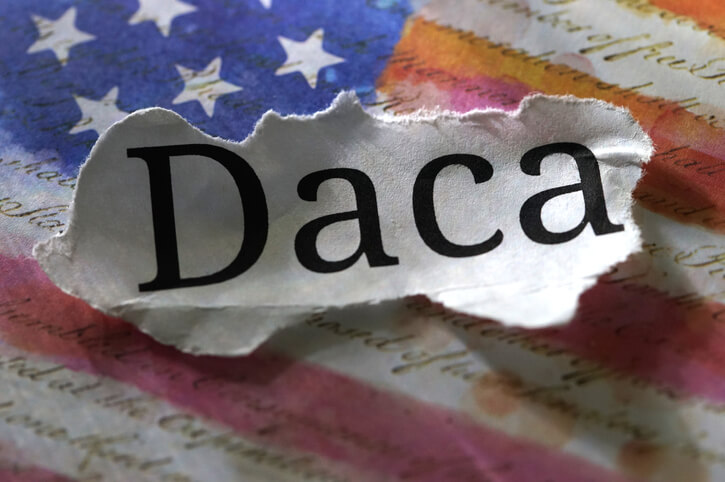In the early 2000s, federal legislators were tasked with the issue: what should be done with individuals who were brought to the United States by their parents as children without legal permission, or sent alone as unaccompanied minors? The child may or may not have known while growing up in the United States that they were undocumented. This question has been an ongoing issue ever since, and through three presidential administrations has experienced many ups and downs.
This past August, in a much-awaited final decision, The Department of Homeland Security (DHS), released a final rule codifying Deferred Action for Childhood Arrivals (DACA). The new regulations, which will take effect on October 31, 2022, will in effect preserve the policies and guidelines that have been in place since its initial June 15, 2012 ruling by then Secretary of Homeland Security Janet Napolitano. With some changes, certain noncitizens who arrived in the United States as children will be permitted to remain in the country with an opportunity to access a renewable, two-year work permit.
The History
Janet Napolitano first administered DACA as homeland security secretary for the Obama administration 10 years ago. Now marking a decade for what was originally planned as temporary, DACA has long endured. Under a directive by Ms. Napolitano, hundreds of thousands of young immigrants were granted a type of temporary permission to stay, work and study here called ‘deferred action.” The program was simply named Deferred Action for Childhood Arrivals or DACA. At its core, DACA stipulated that those qualifying recipients who did not present a risk to national security or public safety, would be allowed to remain in the U.S. and eligible to receive deferred action for a period of two years, subject to renewal, and awarded the opportunity to apply for work authorization.
Backing Up Just A Little
The Biden Administration has worked vigorously to defend DACA asking the court to expeditiously rule to codify the policy. In September 2021, the Department of Homeland Security published a notice of proposed rulemaking to establish regulations to preserve and fortify DACA policy. After a careful review of the public comments received, DHS has issued its final rule maintaining the existing DACA eligibility guidelines and largely preserving the policies that have been in place since the program’s beginning with some amendments.
What Do The New Regulations Hold?
DHS has decided against making any changes that would expand eligibility for the program. However, some important changes have been made to the procedure for DACA terminations. A departure from the United States without advance parole will not automatically result in DACA termination. Instead, United States Citizenship and Immigration Services (USCIS) will exercise discretion on a case by case basis. Before any discretionary termination of DACA, unless the recipient has been convicted of a security offense, USCIS will first issue a Notice of Intent to Terminate and provide an opportunity for a recipient to respond. Furthermore, DHS will not automatically terminate DACA simply because a Notice to Appear, an official document that starts removal proceedings against a foreign national, has been issued or filed.
In summary, the rule continues the DACA policy as announced in the 2012 Napolitano Memorandum and is based on longstanding USCIS practice. The rule embraces the consistent judgment that has been maintained by the Department—and by three presidential administrations since the policy was first announced—that DACA recipients should not be a priority for removal.
The final rule key points:
- Maintains the existing threshold criteria for DACA
- Retains the existing process for DACA requesters to seek work authorization
- Affirms the longstanding policy that DACA is not a form of lawful status, but that DACA recipients, like other deferred action recipients, are considered “lawfully present” for certain purposes
The Complications….
On July 16, 2021, the U.S. District Court for the Southern District of Texas in State of Texas, et al., v. The United States of America, et al. ruled that DACA is unlawful and vacated the 2012 memorandum creating DACA. Ordered by Judge Hanen’s, U.S. district judge for the Southern District of Texas, the nationwide injunction will not change the status quo and continue to prevent USCIS from approving initial DACA requests. For now, USCIS continues to adjudicate renewal requests, but cannot approve initial applications and accompanying requests for employment authorization, including the approximately 80,000 applications that were pending on the date of the injunction. The continued uncertainty has left practitioners and eligible DACA clients in limbo.
In an appeal on July 6, 2022, a three-judge panel in the Fifth Circuit Court of Appeals held oral arguments. A ruling is expected in the coming months, but with no specific deadline for the court’s decision. Regardless of whether the panel rules that the original 2012 DACA program is legal or affirms Judge Hanen’s ruling that it is unlawful, either side is likely to challenge the decision by requesting an en banc hearing before the entire Fifth Circuit and/or appealing to the U.S. Supreme Court. In other words, a Fifth Circuit affirmation that DACA is unlawful will not necessarily mean an immediate end to the program, and it remains unclear how the final DACA regulations will affect any future ruling on the legality of Judge Hanen’s injunction.
Several disappointing decisions have been subsequently issued including a request by plaintiffs to provide interim relief to the 80,000 individuals whose first-time DACA requests have remained pending since Judge Hanen’s injunction. On this 10th anniversary of DACA, The Biden administration continues to push Congress to implement a lasting legislative solution that provides a path to permanent residence for deserving DACA recipients and applicants.
The Law Office Of Michele Alcalde Provides Skilled, Honest and Sound Legal Advice for DACA Recipients
The current DACA landscape is confusing to say the least. And with new rulings, continued litigations and ongoing actions surrounding DACA proceedings, the laws remain difficult and complicated. When it comes to the safety, security and fair treatment of DACA recipients and their families, no one has more knowledge, experience and heart than Michele Alcalde and her compassionate team. Helping countless individuals understand their rights and eligible benefits remains at the very core of this law practice. Michele will interpret the law and safeguard the rights of eligible DREAMERS. Starting in her own community and much beyond, Michele works diligently to help families who have devoted their lives to strengthening our country, secure lawful work authorization and protection from deportation in order to gain the peace of mind they deserve. Find us at our social media accounts or call us at 732.766.1407.
Posted in: Uncategorized


